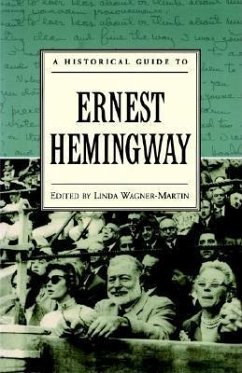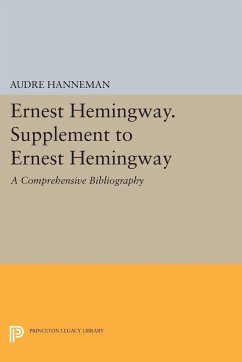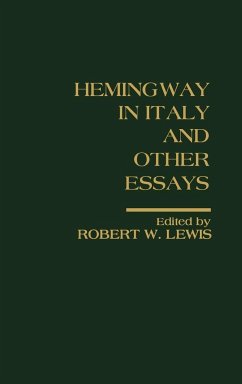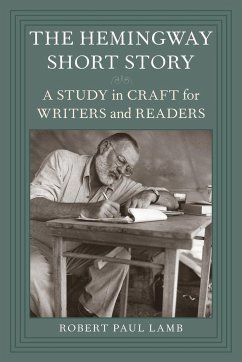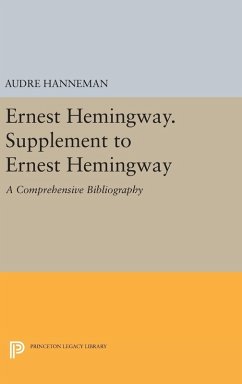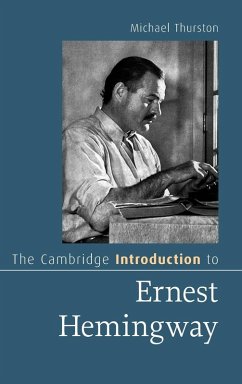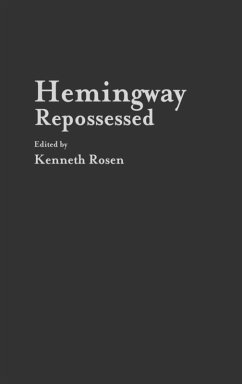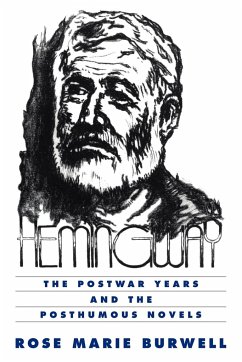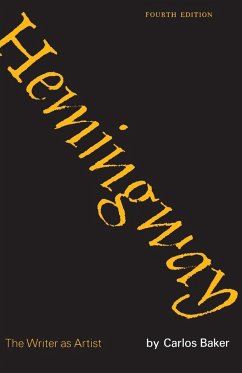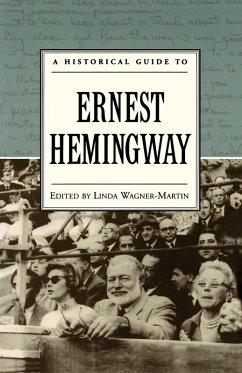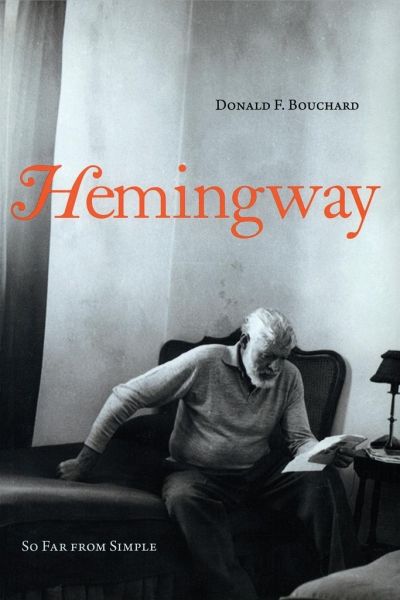
Hemingway
So Far from Simple
Versandkostenfrei!
Versandfertig in 1-2 Wochen
16,99 €
inkl. MwSt.

PAYBACK Punkte
8 °P sammeln!
Ernest Hemingway has long been recognized as one of the most important and influential fiction writers of the twentieth century. Despite receiving many accolades during his lifetime, including the Nobel Prize and the Pulitzer Prize, his work also attracted a good deal of criticism. Some critics felt that his characters lacked depth; others, especially feminists, objected to his emphasis on hyper-masculine subject matter, such as warfare, bullfighting, and hunting. This fresh reevaluation of Hemingway's career takes a new and different perspective from that of traditional Hemingway critics. The...
Ernest Hemingway has long been recognized as one of the most important and influential fiction writers of the twentieth century. Despite receiving many accolades during his lifetime, including the Nobel Prize and the Pulitzer Prize, his work also attracted a good deal of criticism. Some critics felt that his characters lacked depth; others, especially feminists, objected to his emphasis on hyper-masculine subject matter, such as warfare, bullfighting, and hunting. This fresh reevaluation of Hemingway's career takes a new and different perspective from that of traditional Hemingway critics. The author draws on the postmodernist writings of Michel Foucault, Gilles Deleuze, and Edward Said (who was greatly influenced by Foucault's thought). From this perspective, he underscores Hemingway's self-conscious focus on his career as a writer, and the ways in which he addressed critical responses to his works. He makes frequent reference to Hemingway's correspondence to highlight key turning points in Hemingway's career, takes issue with the early tendency to reduce Hemingway's works to the "biographical," and shows how Hemingway's innovations resulted from a variety of factors, most notably his preoccupation with his literary career. The early chapters trace Hemingway's specific view of literary modernism and its effect on his writing. The later chapters show how he disowned his earliest allegiance and developed a distinct "political" point of view-not one to be confused with party affiliations or political slogans but his own individualistic point of view. In addition, the author pays more attention than most critics have to those works that were largely ignored or devalued when published, especially Death in the Afternoon and Across the River Into the Trees. This thoughtful, in-depth study of the career of a 20th-century literary icon shows that there is still a great deal in Hemingway's work that deserves serious critical reflection.





